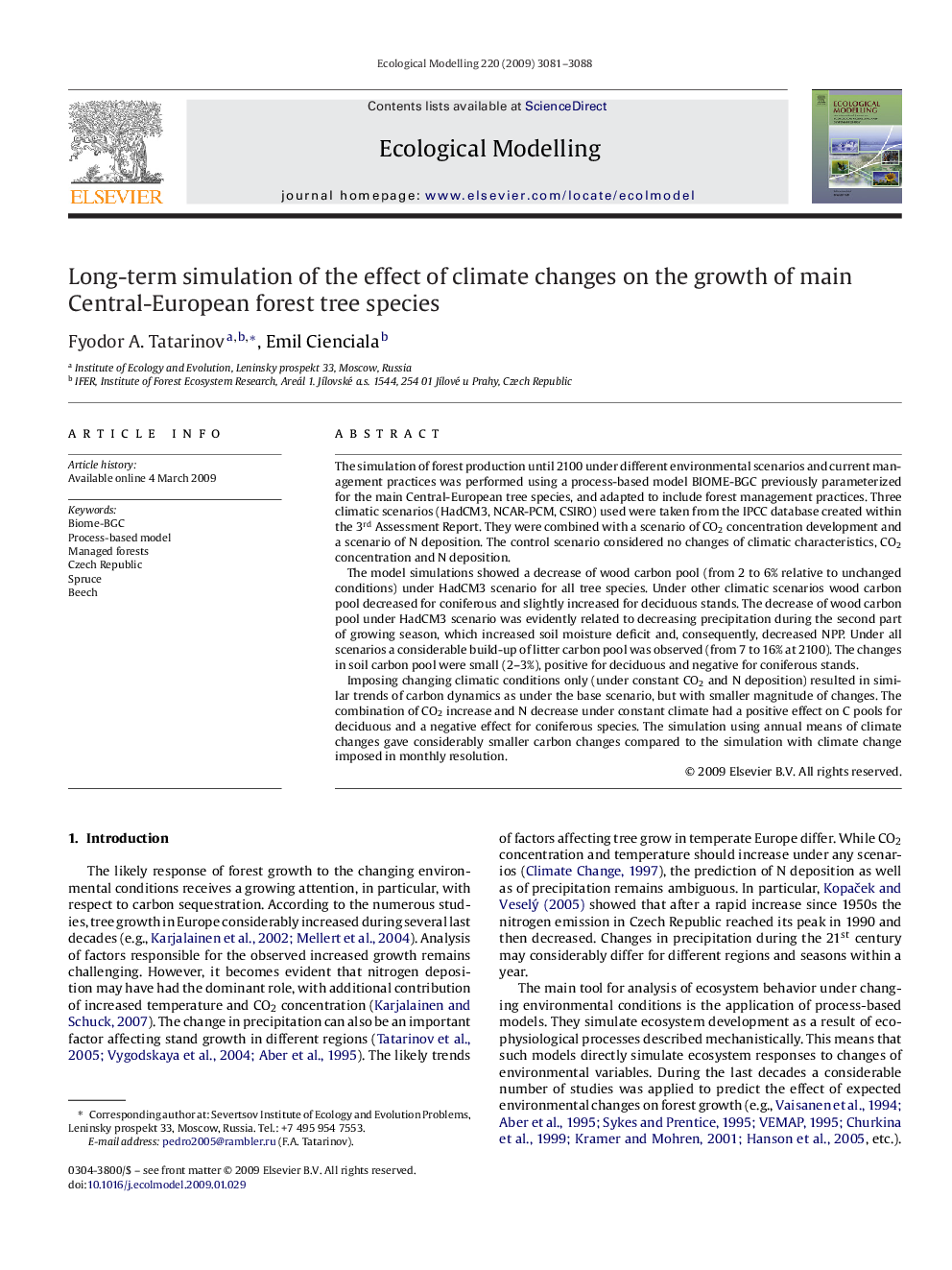| Article ID | Journal | Published Year | Pages | File Type |
|---|---|---|---|---|
| 4377647 | Ecological Modelling | 2009 | 8 Pages |
The simulation of forest production until 2100 under different environmental scenarios and current management practices was performed using a process-based model BIOME-BGC previously parameterized for the main Central-European tree species, and adapted to include forest management practices. Three climatic scenarios (HadCM3, NCAR-PCM, CSIRO) used were taken from the IPCC database created within the 3rd Assessment Report. They were combined with a scenario of CO2 concentration development and a scenario of N deposition. The control scenario considered no changes of climatic characteristics, CO2 concentration and N deposition.The model simulations showed a decrease of wood carbon pool (from 2 to 6% relative to unchanged conditions) under HadCM3 scenario for all tree species. Under other climatic scenarios wood carbon pool decreased for coniferous and slightly increased for deciduous stands. The decrease of wood carbon pool under HadCM3 scenario was evidently related to decreasing precipitation during the second part of growing season, which increased soil moisture deficit and, consequently, decreased NPP. Under all scenarios a considerable build-up of litter carbon pool was observed (from 7 to 16% at 2100). The changes in soil carbon pool were small (2–3%), positive for deciduous and negative for coniferous stands.Imposing changing climatic conditions only (under constant CO2 and N deposition) resulted in similar trends of carbon dynamics as under the base scenario, but with smaller magnitude of changes. The combination of CO2 increase and N decrease under constant climate had a positive effect on C pools for deciduous and a negative effect for coniferous species. The simulation using annual means of climate changes gave considerably smaller carbon changes compared to the simulation with climate change imposed in monthly resolution.
